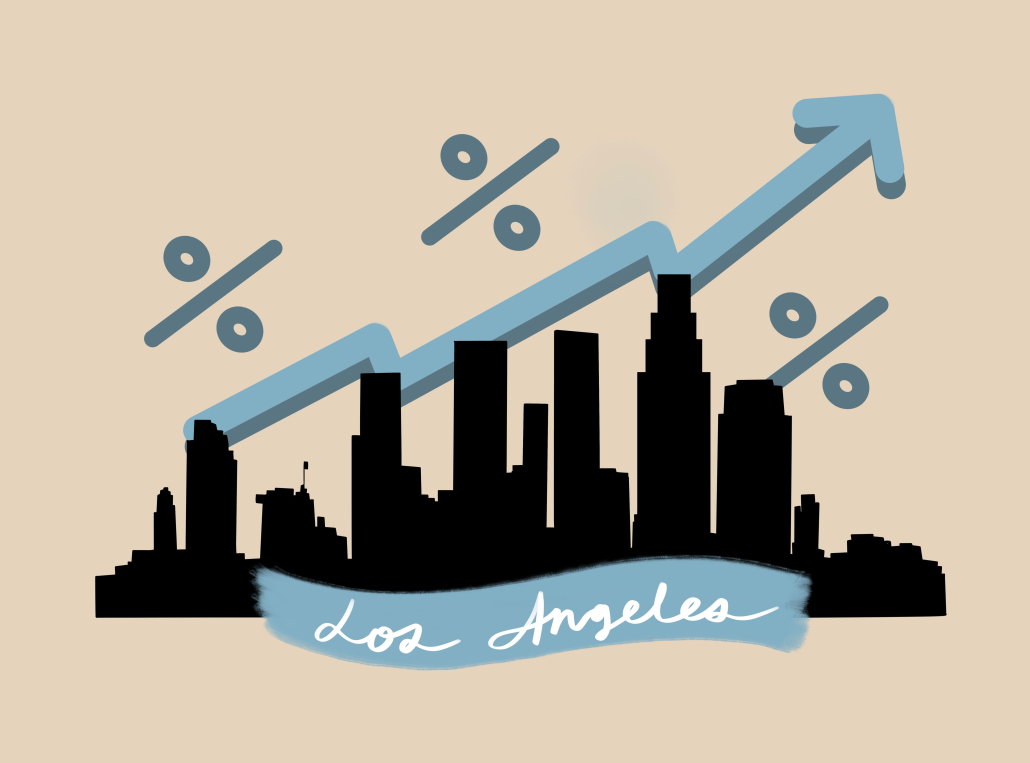USC experts anticipate economic recession, students feel the strain

With inflation rising at a rate not seen since the 1970s, the United States is experiencing price increases on a dwindling supply of products, average gas prices soaring above $5 a gallon and a decrease in home affordability pushing more residents out of the housing market — with the possibility of an impending recession lingering in experts’ minds. In the Los Angeles area, the Consumer Price Index rose 0.8% in the month of May alone, a trend affecting the USC community in a myriad of ways.
The causes of the current economic state are not the same as past periods of uncertainty. According to Rodney Ramcharan, a professor of finance and business economics, the pandemic created a supply-side shock on goods coming from Asian countries that recently put lockdowns on production, as well as an increase in demand for these products in the U.S., motivated by the Federal Reserve’s stimulus. The plausibility of curbing such fast-growing rates, Ramcharan said, is an uncertain game.
“There are still bottlenecks in the supply chain, so it’s very difficult to see when the inflation rate will come down,” Ramcharan said. “With that being said, it’s unlikely that this will go on for the next five years. It’s much more likely that this will become much more contained within the next six months to the next year.”
Students have also noticed these unique inflationary conditions manifesting in the prices they pay for common goods, including Kenny Nguyen, a rising sophomore majoring in computer science, who observed prices going up for a variety of products he regularly buys, ranging from cans of Arizona tea to a full tank of gas for his car.
Nguyen said seeing usual product prices becoming steeper made him feel uncomfortable against his unchanged pay.
“I’m not making any more money. I’m still getting paid $15.50 [an hour], and my wages aren’t going up,” Nguyen said. “But now things are getting more expensive, so it seems slightly unfair.”
The pandemic’s effects on the housing market strike a similar chord, with less houses being available for sale and rent — with a housing supply about half the size it was before the pandemic — and more individuals emerging to make such an investment.
The most prominent area of price inflation in the current housing market is with rents, said Gary Painter, a professor of public policy and director of the Homelessness Policy Research Institute. During the pandemic, rent prices fell for the first time in 10 years, including in and around the USC area, as more students and other University community members lived away from campus, which decreased demand for housing near campus and across the U.S.
In the current phase of looser restrictions on life and the market, available homes for rent or purchase cannot meet the rate of population growth, especially in the state of California, Painter said.
“We just simply have to make it easier to build housing of all types: housing that’s aimed at people who have moderate income, people who have low income and people who have upper middle class incomes,” said Painter on California’s housing market. “We just simply haven’t built enough housing of any type.”
According to Painter, doing so will require the enactment of a set of local housing policies to undo past restrictions that made it harder to build in the area. Studies show that the more availability there is of affordable housing, the higher regional economic growth will be, he said.
Economic experts reached a consensus view that a rise in inflation affecting goods, gas prices, homes and more, Ramcharan said, will increase the risk of a recession.
He advised that students preparing to enter a job market with a shortage of openings should keep their eyes and ears open for opportunities and remain flexible for second and third-choice jobs.
“You’re graduating from a great college, so you already have a leg up in the labor market,” Ramcharan said. “People will notice your CV, and you’re likely to get interviews if there are vacancies, so search hard. Send out your resumes extensively.”

